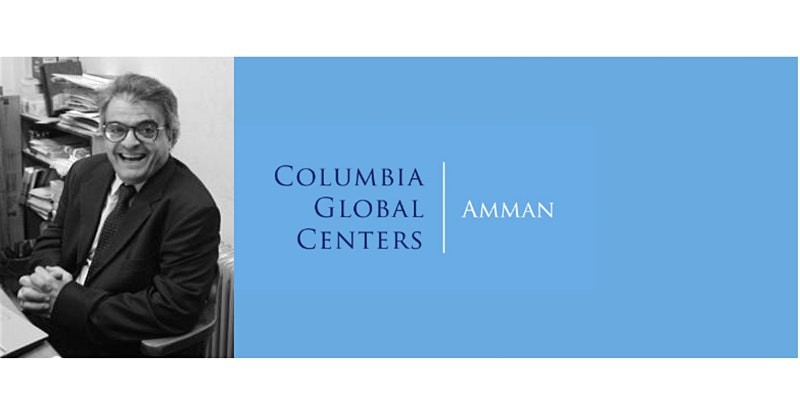A keynote lecture by Michel Al-Maqdissi, Researcher at the Department of Oriental Antiquities, Louvre Museum
This keynote is part of a workshop, Middle Eastern Photographic Documentation Project, organized by The Metropolitan Museum of Art, Columbia University, and Columbia Global Centers | Amman.
The Great Arab Revolt and the military uprising of Arab forces against the Ottoman Empire in the Middle East during World War I in 1918 created a new phase for the French Mandate. The Mandate Authority focused its primary attention on establishing the “Service des Antiquités”, an administration with infrastructure to collect, preserve, and display Syrian heritage and antiquities. The archaeological archival material, kept at the Louvre Museum and at Institut Français du Proche-Orient (Ifpo) in both Beirut and Damascus, is important documentation that provides an understanding of the challenges of developing the “Question Archéologique Syrienne”.
In his talk, Michel Al-Maqdissi will delve into the development and management of museum facilities such as the “Sérvice des Antiquitiés” over the course of twenty-seven years (1918-1946).
Maqdissi will also discuss the era of establishing museums in the Middle East at the beginning of 1918 when the first archaeological museum in Beirut was established by Léonce Brossé. In 1919, the foundation of other museums had been laid in Damascus by M. Kurd Ali, the president of the Syrian Academy of Sciences, and by Colonel Normand in the city of Adana. Then, in 1925, Captain Carbillet and Maurice Dunand established a museum in the city of Souweida in southern Syria, and at the same time the French Antiquities Authority created the “Dépôt des Antiquiés” in Palmyra. Six years later, in 1931, two museums were founded in Antioch by Michel Écochard, and in Aleppo by a local archaeological society, with the assistance of Georges Ploix de Rotrou.
Michel Al-Maqdissi is a researcher at the Department of Oriental Antiquities at the Louvre Museum since 2015. He has been the director of several archaeological missions in Syria in Tell Sianu, Mishirfeh-Qatna, and Palmyra, and led the Service des fouilles et études archéologiques in the Direction Générale des Antiquités et des Musées of Syria from 2000 to 2012.
Currently, Maqdissi's work focuses on producing a scientific publication that summarizes his archaeological work at the Phoenician site of Amrit in Syria. He has also been commissioned by the Louvre Museum to work on the publication of archival material reported by R. du Mesnil du Buisson from the central region of Syria between 1924 and 1930, and to study material recovered from Palmyra between 1965 and 1967.
Maqdissi is the editor-in-chief of an archaeological newspaper in Damascus Studia Orontica since 2008, and he disseminated his latest scientific research on Syria through a collection entitled, Documents d'Archéologie Syrienne. He is the author of several books including Adnan Bounni Memorial (2013), Mishirfeh-Qaṭna (2014), Hauran Region (2014), Homs Region (2015), Palmyra in Disaster (2016), and recently Nassib Saliby Memorial (2018). Maqdissi also authored a reflection book on Syrian archeology titled Archéologie et Humanisme, Essais Syriens in 2012. He holds a Ph.D. from the University of Paris I-Sorbonne in Oriental Archaeology (1994).
